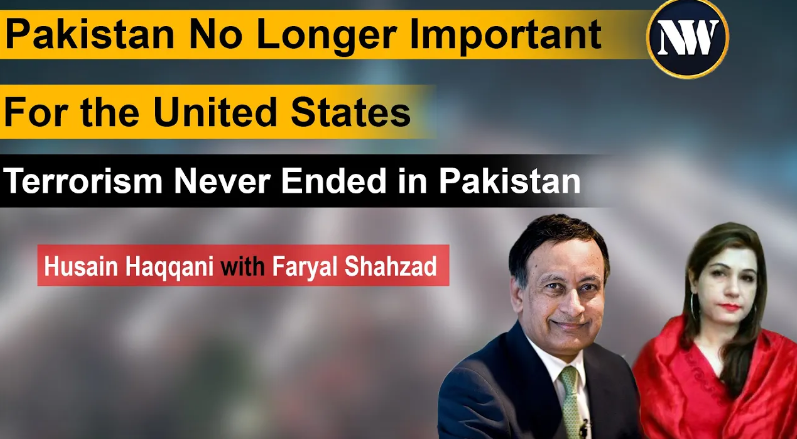In a recent interview, Hussain Haqqani, former Pakistan ambassador to the U.S., offered profound insights into the multifaceted dimensions of terrorism's reemergence and the critical steps necessary to stem its tide. As Pakistan confronts these challenges, it must rise above political divides, unite in purpose, and forge a cohesive national counter-terrorism strategy.
The interview delved into the question of whether the recent surge in terrorist activities marks a true "reemergence." Haqqani argued that the term is misleading, highlighting that terrorism had never truly vanished from Pakistan since the early 1990s. The roots of this complex issue stretch back to Pakistan's role in the Soviet-Afghan conflict when extremist elements flocked to the country. While the focus initially was on aiding the Afghan resistance against the Soviet Union, this unleashed a torrent of radical ideologies that have since mutated and adapted over time.
Crucially, Haqqani emphasized that terrorism isn't a monolithic force, but a multifaceted one with various agendas. Sectarian strife, radical nationalism, and religious extremism have all found fertile ground in Pakistan. This mosaic of militant groups, each with distinct motives and strategies, underscores the need for a comprehensive counter-terrorism approach that isn't beholden to the vacillations of political leadership.
The discussion then shifted to the repeated targeting of Pakistan's security forces. Haqqani contended that these attacks serve a clear purpose – to dissuade security agencies from challenging the jihadist status quo. The assault on institutions charged with safeguarding the nation underscores the gravity of the threat. Additionally, the lack of preparedness and surveillance failures in recent attacks were linked to an overarching complacency that continues to plague Pakistan's response to terrorism.
In response to the question of whether a permanent state of war is sustainable for Pakistan, Haqqani emphasized the importance of forging a national consensus. He urged Pakistan to acknowledge the inescapable role of its military and advocated for a single-minded focus on eliminating terrorism in all its forms. This, he argued, required a paradigm shift away from appeasement and towards resolute action.
The interview then ventured into Pakistan's often convoluted relationship with the United States. Haqqani illuminated the changing dynamics of this alliance, noting that Pakistan is no longer indispensable to U.S. strategic interests. The interviewee asserted that a recalibration is necessary, with both nations finding common ground in functional rather than strategic engagement. Pakistan must grapple with this shift and adjust its expectations accordingly.
Turning to the issue of Guantanamo Bay and the challenges posed by the release of former detainees, Haqqani analyzed the intricate web of national security and international legal systems. While acknowledging the complexities surrounding the detainees, he highlighted the need to address underlying causes that lead individuals to engage in extremism. Pakistan, he argued, can draw lessons from this situation and work to rehabilitate individuals susceptible to radicalization.
As the interview neared its conclusion, Haqqani's insights underscored the importance of forging a united front against terrorism. Political polarization, he contended, hampers effective counter-terrorism measures. Pakistan's youth, a demographic often swayed by rhetoric and conspiracy theories, must be exposed to accurate information and educated about the dangers of extremism.
In a poignant observation, Haqqani noted that the evolution of terrorism in Pakistan is intrinsically linked to the misconceptions and false narratives that have permeated its society. To break free from this cycle, Pakistan must reevaluate its self-perception, debunk conspiracy theories, and confront the reality of its internal challenges.

